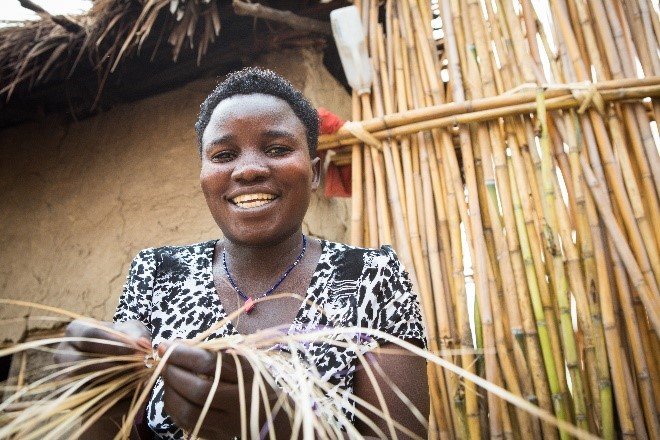
What our Six-Year Partnership With Save The Children Taught us About Creating Employment Opportunities for Rural Children and Youth
More than six years ago, we began a partnership with Save the Children to co-develop the Youth in Action (YiA) program. Since then, it has gone on to impact the lives of more than 40,000 young people across Burkina Faso, Egypt, Ethiopia, Malawi, and Uganda. When we started, the strategic and values alignment with Save the Children was clear — collaborating with a globally renowned NGO would allow us to reach highly vulnerable young people in remote locations.
We wanted to focus on rural, out-of-school adolescents between the ages of 12 and 18, recognizing that while most youth programs targeted older youth, adolescents were also actively involved in livelihood activities. Knowing this segment of young people would have diverse needs, we wove together a comprehensive package of services that blended skills-building — literacy, numeracy, non-cognitive skills, and financial literacy — as well as livelihoods — technical skills, access to finance, mentorship — to help young people increase their incomes and contribute to their households.
Importantly, to better understand what would be effective for this segment of adolescents, we invested in a learning agenda to better understand how the program could support the livelihood aspirations and potential of this group.
Now, as the program is closing, Save the Children has developed a narrative report that captures key learning from more than thirty studies conducted over the duration of the program, including surveys of participants from four countries that capture longer term outcomes of participants. Critical findings include:
- Vulnerable adolescents outside the education system can learn and apply critical skills over a condensed time-period. Youth received four months of learning, three sessions a week, and three hours aday, with local facilitators trained in inclusive and participatory teaching. However, while the four months of learning can help accelerate literacy development, adolescents need more dedicated instruction to get to a point where they can read with comprehension and apply their literacy skills in the labour market effectively.
- There is a strong relationship between family support and skills development. There was considerable evidence on the impact of family and community support on skill building for youth. Young people in the program engaged more effectively within their families and community and, in several instances, received financial support from their families to start micro-enterprises. This often resulted in changing perceptions of community leaders on the potential of young people.
- In remote, underserved communities, micro-enterprise is often the only viable livelihood. YiA, youth in all five countries overwhelmingly chose self-employment and started a micro-enterprise. Applying the skills training, access to mentorship and reflection-based learning, as well as a cash transfer, enabled participants in Egypt, Ethiopia, and Uganda, to earn more than the USD 1.90/day, effectively improving their socioeconomic status over time.
- Gender dynamics should be considered beyond participation and livelihood outcomes. Overall, there were very few statistically and practically meaningful differences in income and savings between male and female youth before.
- Comprehensive programs with multiple components require early sustainability strategies. Save the Children has effectively integrated components of the YiA program into other programs in Ethiopia and Malawi, securing funding from other donors. Local governments and training institutions have also adapted elements of YiA. Recognizing that it’s unlikely that a comprehensive model will be fully adopted into national policies, early planning to identity program components that can be institutionalized by stakeholders is key.
The findings and evidence of Youth in Action, and our partnership with Save the Children, has helped to shape the direction of our work over the past six years, as well as our new Young Africa Works strategy. Because of this partnership, we have learned much about working with young people in rural areas, providing a holistic approach to programming, and focusing on the particular needs of young women. These findings, and this report offer helpful guidance and evidence of what works to others committed improving the livelihoods of vulnerable young people.


